.webp)
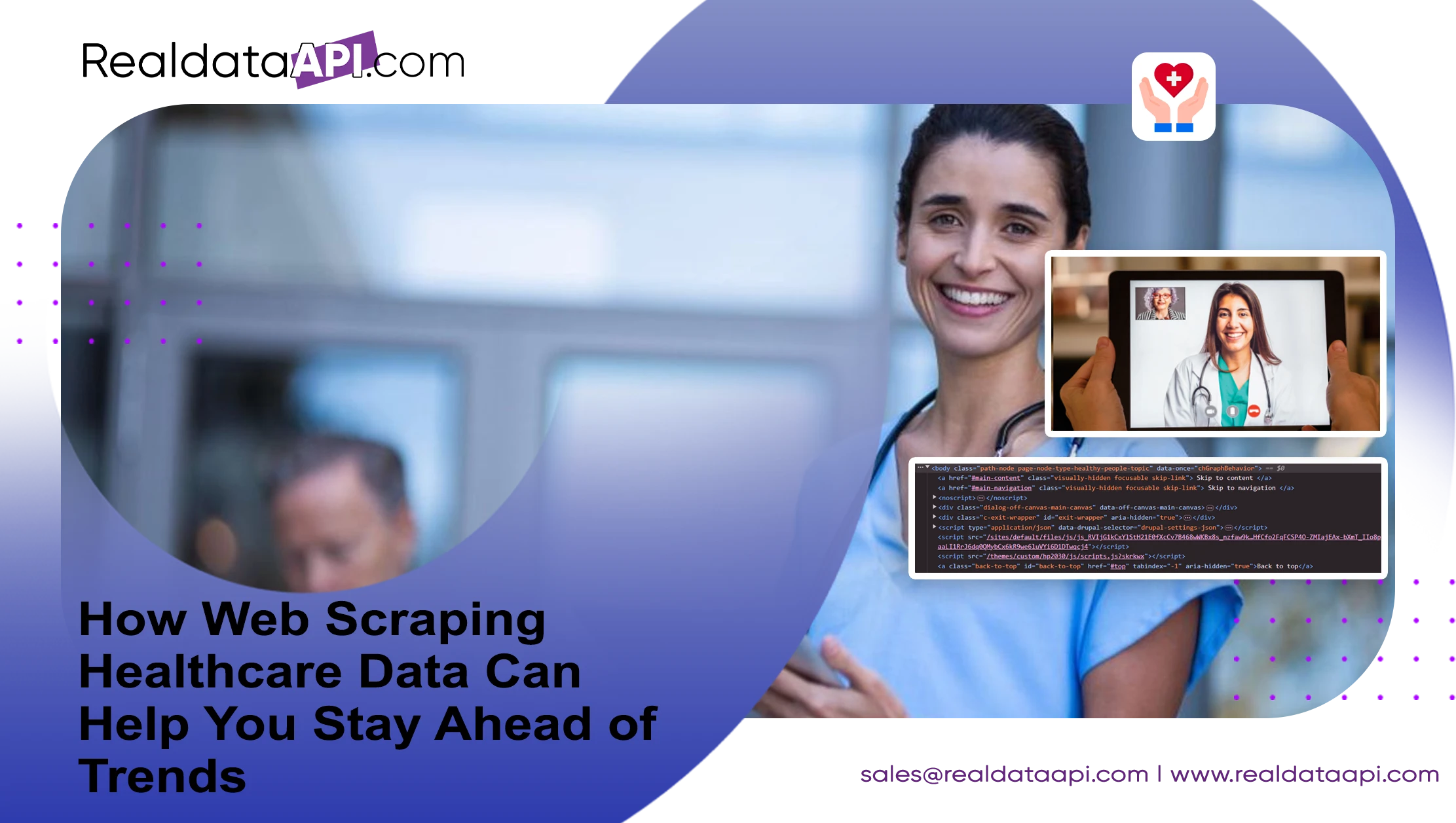
Introduction
The healthcare industry is evolving rapidly with technological advancements, treatment methods, and patient care. Much of the information regarding these changes is available online in this digital age. Whether it's new medical products, health insurance plans, or patient feedback, healthcare data is abundant across websites, directories, blogs, and forums. However, manually tracking these trends is nearly impossible with such vast amounts of data. This is where web scraping healthcare websites comes into play.
Web scraping is the automated process of extracting data from websites, enabling organizations to collect, organize, and analyze data efficiently. This method has revolutionized industries, and the healthcare sector is no exception. Through scraping healthcare website data, organizations can track trends, monitor patient feedback, compare medical services, and more. In this blog, we will explore how web scraping healthcare websites aids in tracking trends, the technologies involved, and real-world examples of their effectiveness.
Why Web Scraping Healthcare Websites is Essential
Staying updated with the latest developments in healthcare is critical. Whether pharmaceutical companies track drug prices, hospitals analyze patient feedback, or insurers compare medical service costs, web scraping helps healthcare professionals gather insights in real-time.
Some key trends that can be tracked through healthcare directory data scraping include:
Medical service availability: Tracking available services across hospitals and clinics.
Pharmacy pricing: Monitoring drug prices and offers.
Health insurance plans: Extracting detailed health insurance information.
Patient sentiment: Scraping reviews and ratings from healthcare directories.
New healthcare products: Tracking product listings for medical equipment or supplement innovations.
What Can Be Scraped From Healthcare Websites?
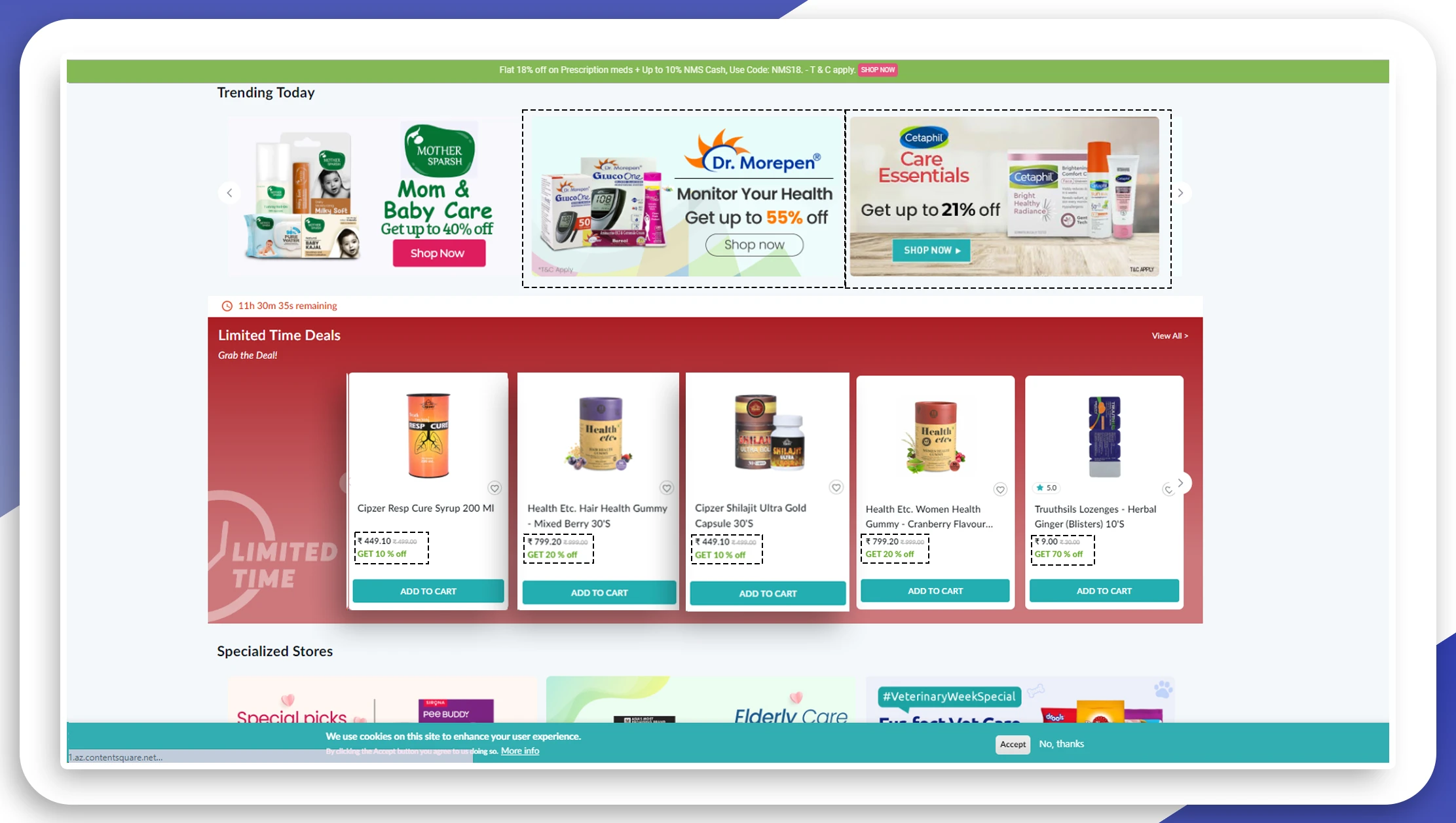
Web scraping allows for extracting a wide variety of data from healthcare websites. The data points that can be captured include:
Medical Service Listings: Healthcare websites provide a detailed catalog of medical services. Scrape medical service listings to analyze which services are offered, their pricing, and availability.
Pharmacy Pricing and Offers: By utilizing web scraping pharmacy data, organizations can track drug prices, discounts, and availability across different pharmacies. This is especially important for patients comparing medication costs.
Health Insurance Information: Comparing health insurance plans is complex. Extract health insurance information from insurance provider websites and healthcare platforms to help patients make informed choices.
Patient Reviews and Ratings: Patient sentiment analysis is vital for healthcare providers. Scraping patient reviews and ratings from websites like WebMD or healthcare directories can provide insights into patient satisfaction and areas for improvement.
Healthcare Blogs and Articles: Healthcare professionals and patients alike can benefit from healthcare blogs and article data extraction, which allows the collection of informative content on the latest medical trends and innovations.
Why Web Scraping Healthcare Websites is Essential
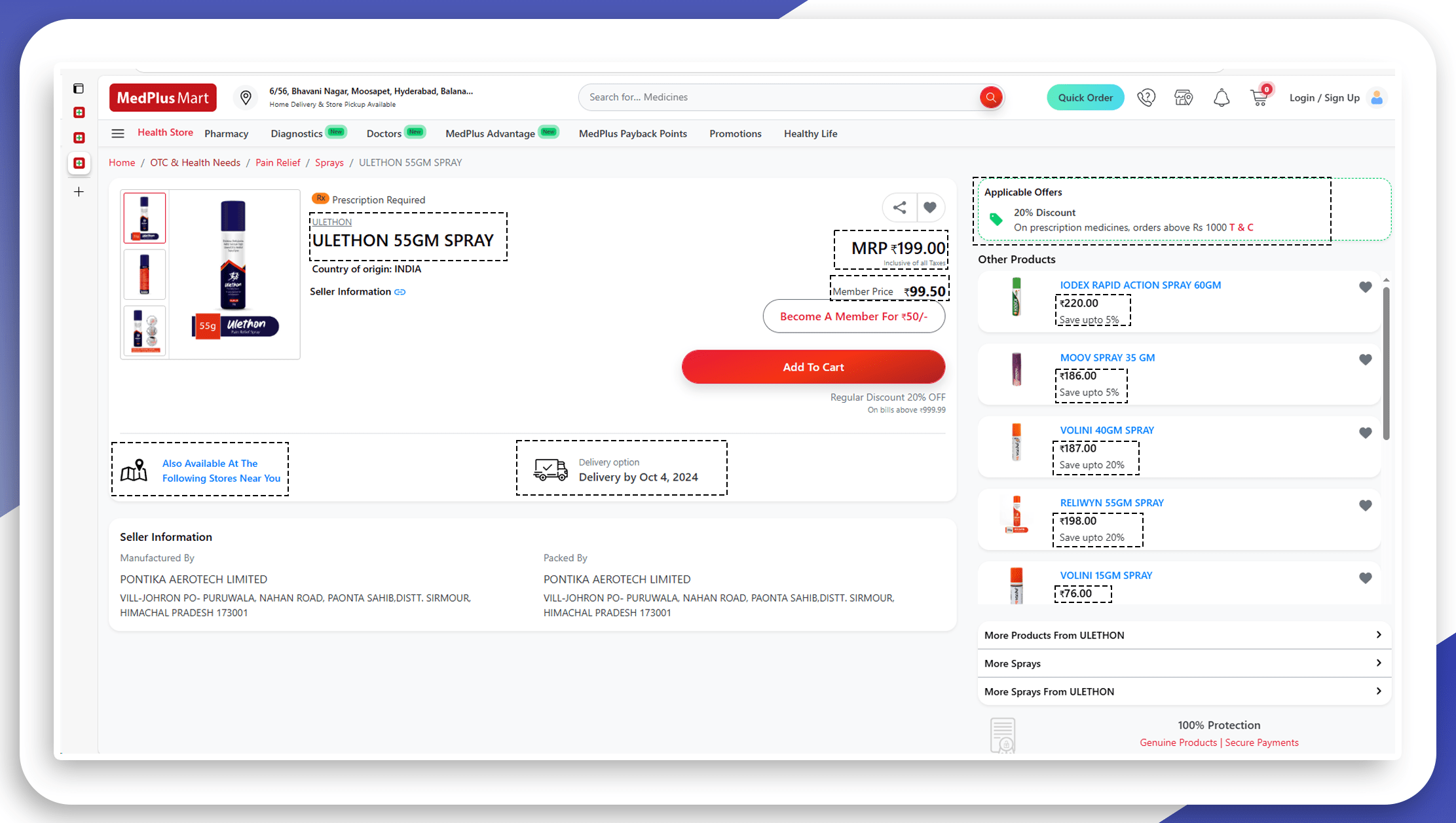
Staying updated with the latest developments in healthcare is critical. Whether pharmaceutical companies track drug prices, hospitals analyze patient feedback, or insurers compare medical service costs, web scraping helps healthcare professionals gather insights in real-time.
Some key trends that can be tracked through healthcare directory data scraping include:
Medical service availability: Tracking available services across hospitals and clinics.
Pharmacy pricing: Monitoring drug prices and offers.
Health insurance plans: Extracting detailed health insurance information.
Patient sentiment: Scraping reviews and ratings from healthcare directories.
New healthcare products: Tracking product listings for medical equipment or supplement innovations.
How Does Web Scraping Help Track Trends in Healthcare?
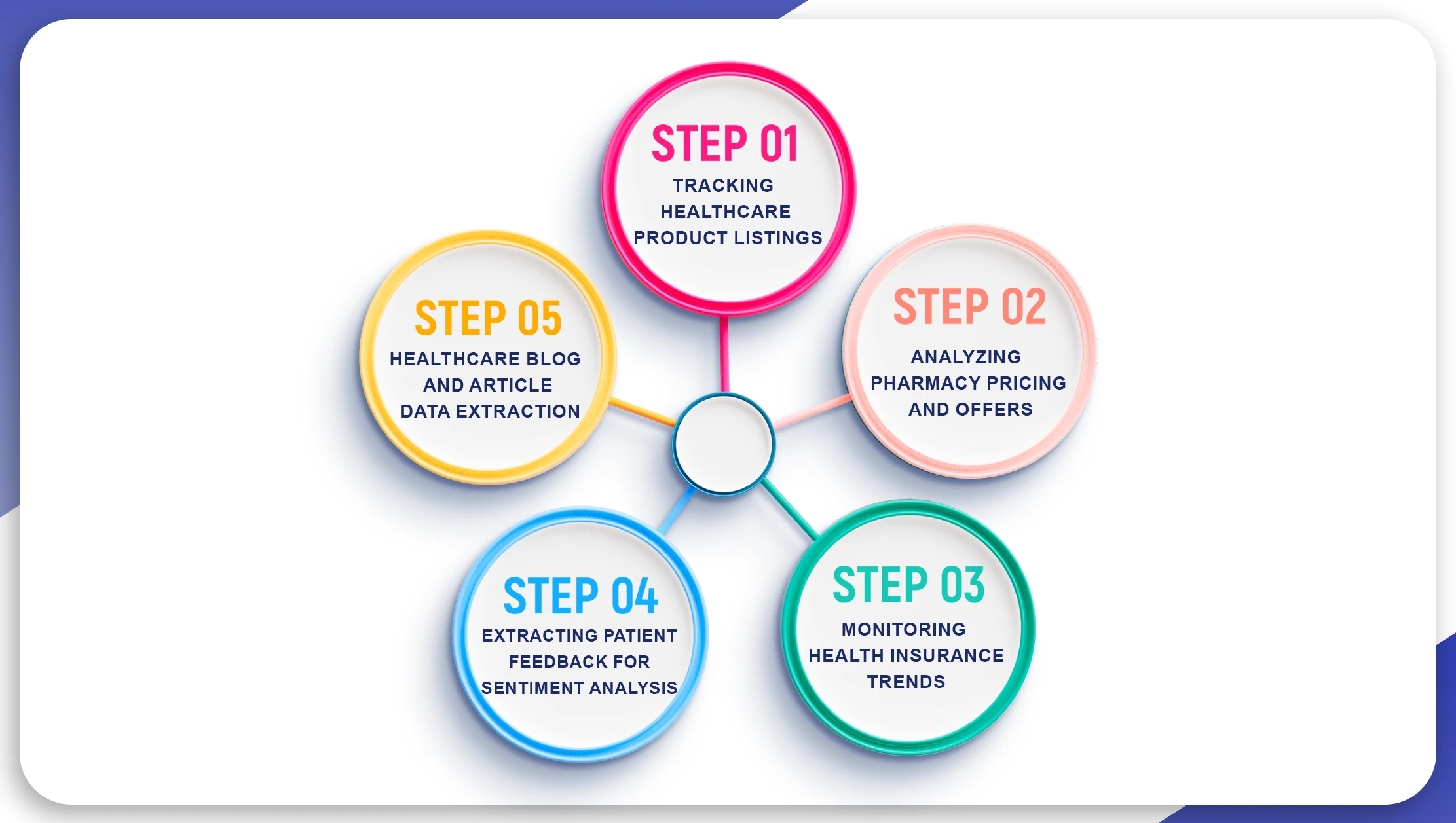
1. Tracking Healthcare Product Listings
One significant use of scraping healthcare product listings is tracking the latest medical innovations. Companies selling medical supplies or equipment can use web scraping to monitor competitors’ offerings, new product launches, and pricing strategies.
Case Study:
A leading medical device company used healthcare website data scraping services to track competitors' product launches. By scraping data from competitor websites and e-commerce platforms, they gathered information on new product introductions and their price points. This allowed the company to adjust its strategy, launching competitive products ahead of market trends and resulting in a 15% increase in sales.
2. Analyzing Pharmacy Pricing and Offers
Drug pricing is a critical concern for both healthcare providers and patients. Scrape pharmacy pricing and offers to provide real-time comparisons between pharmacies, enabling better decision-making for healthcare professionals and patients. This helps identify pricing trends, offers, and discounts across various platforms.
Stats:
A recent study showed that 42% of patients compare drug prices online before purchasing. By using web scraping pharmacy data, organizations can aggregate this information and offer patients transparent pricing, helping them choose the most affordable options.
3. Monitoring Health Insurance Trends
The health insurance landscape is highly dynamic, with frequent plan offerings, premiums, and coverage changes. Extracting health insurance information via web scraping allows insurers and brokers to stay competitive. They can adjust their offerings by tracking trends in insurance pricing, deductibles, and coverage options.
Case Study:
A health insurance provider implemented a strategy to scrape healthcare website data and monitor competitors' plan offerings. The scraped data helped the company identify gaps in its own services and introduce new health plans. This resulted in a 25% increase in customer acquisition over a six-month period.
4. Extracting Patient Feedback for Sentiment Analysis
Patient feedback is invaluable in assessing the quality of care provided by healthcare institutions. Scraping patient reviews and ratings from healthcare directories, forums, and social media allows organizations to analyze sentiment and identify areas for improvement. This data can be categorized into positive, negative, or neutral sentiments, helping healthcare providers address patient concerns more effectively.
Stats:
A survey found 72% of patients read online reviews before selecting a healthcare provider. Scraping this data helps providers understand public sentiment and enhances their services based on real-time feedback.
5. Healthcare Blog and Article Data Extraction
Healthcare blogs and articles provide a wealth of information on new treatments, technologies, and healthcare policies. Healthcare blogs and article data extraction help healthcare organizations stay updated on the latest trends and developments in their field. Companies can gain insights into emerging technologies, policy changes, and medical breakthroughs by regularly scraping articles.
Real-Time Data Collection with APIs
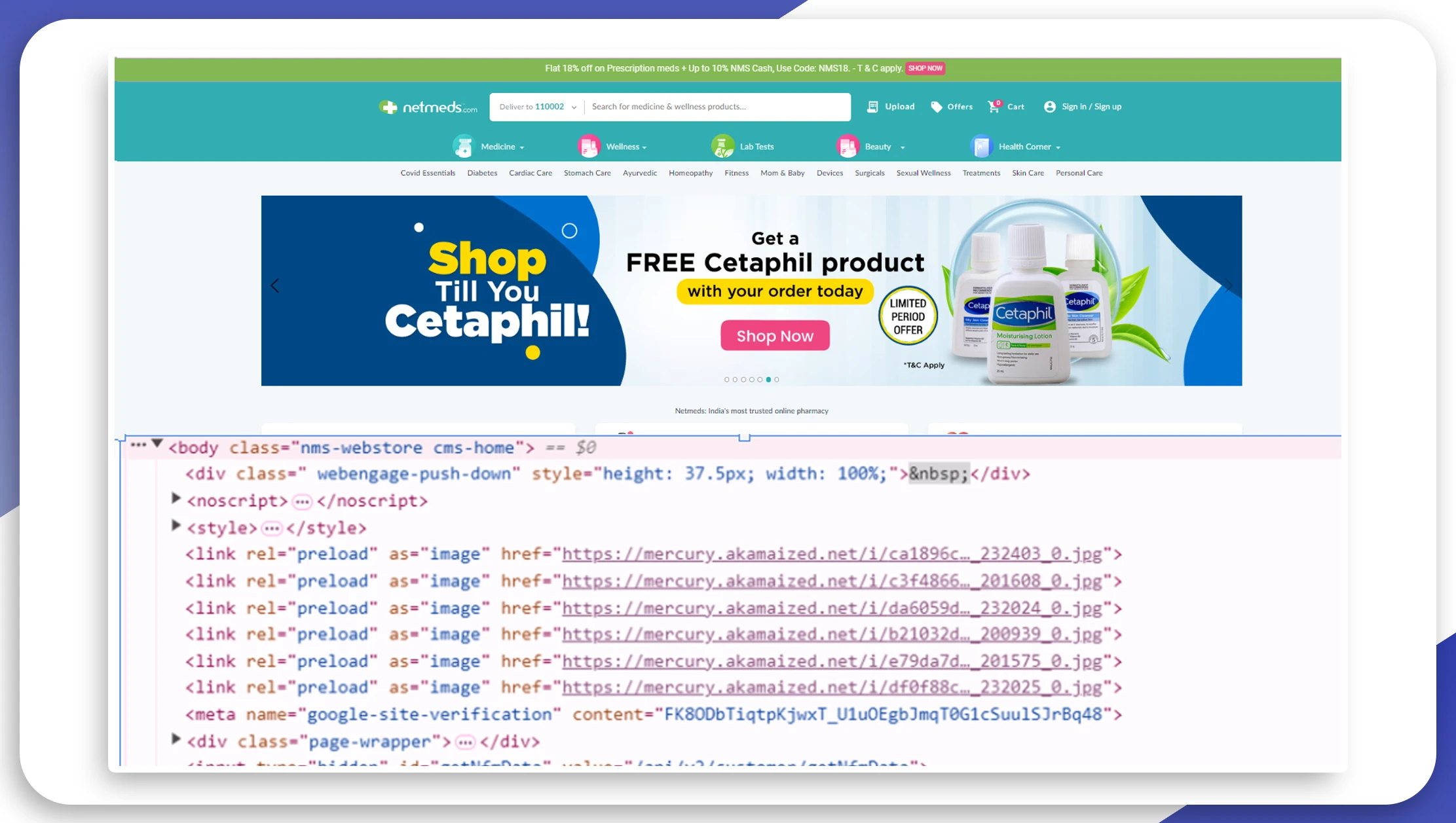
In addition to scraping websites, many healthcare platforms provide APIs for collecting healthcare website data. APIs can pull structured data from healthcare websites and databases in real time, offering a more reliable and scalable approach to extracting healthcare website data.
Benefits of Using APIs:
Efficiency: APIs provide structured data, reducing the need for manual parsing.
Real-time Updates: APIs often offer live data, allowing organizations to make quicker decisions.
Scalability: APIs efficiently handle large volumes of data, making them ideal for large-scale data collection.
For instance, healthcare directories or pharmacy websites may offer APIs for extracting drug prices, patient feedback, and service listings, making it easier to track trends.
Challenges in Scraping Healthcare Websites
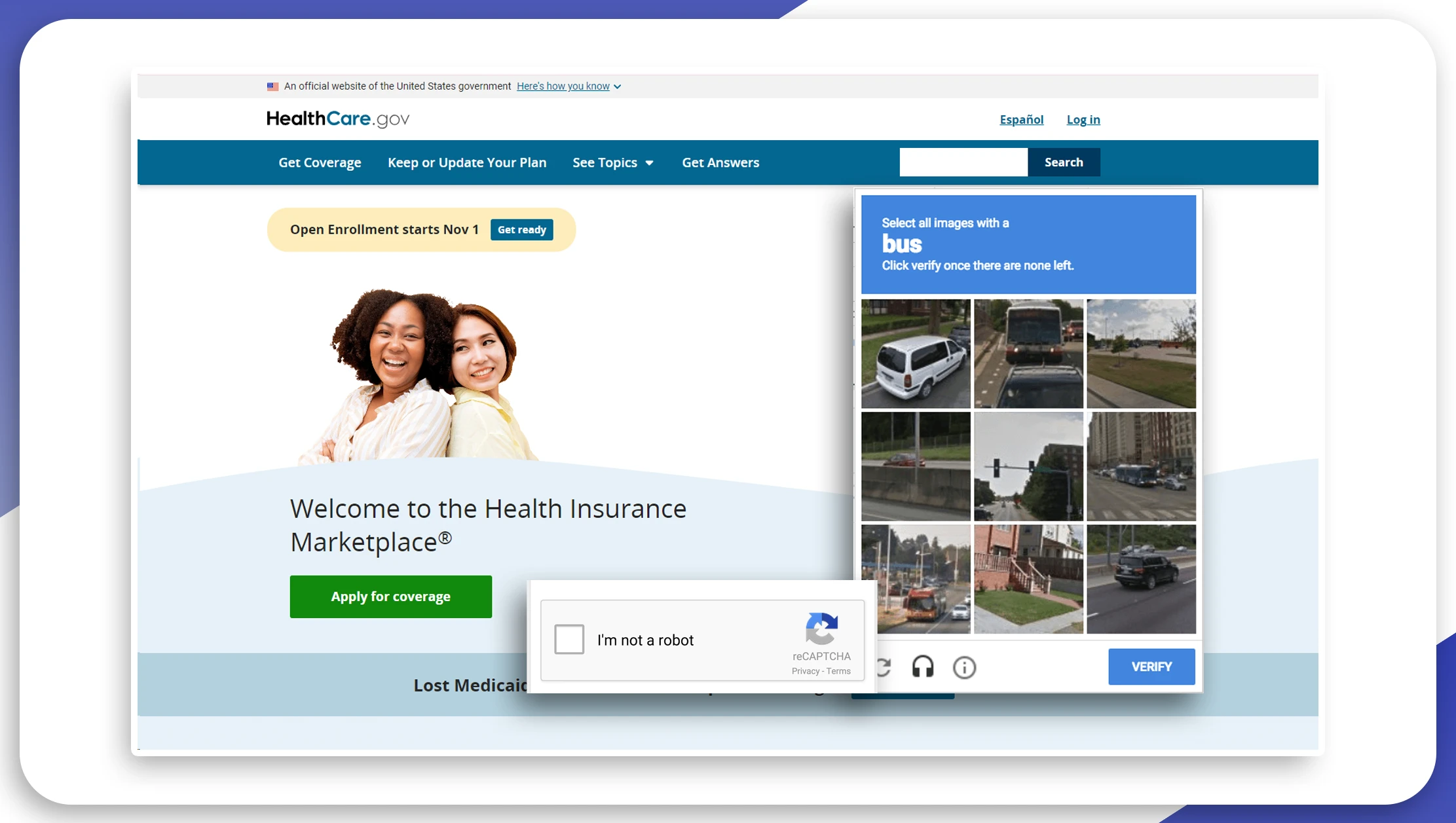
While healthcare data scraping is beneficial, it does come with its own set of challenges:
Anti-Scraping Mechanisms: Many websites implement measures like CAPTCHAs and IP blocking to prevent scraping. Overcoming these obstacles may require healthcare website data scrapers with advanced capabilities, such as rotating proxies and CAPTCHA-solving techniques.
Data Privacy Regulations: Healthcare data is sensitive, and scraping such information must comply with legal frameworks like HIPAA in the U.S. or GDPR in Europe. To avoid legal repercussions, it’s important to ensure healthcare website data extraction adheres to local data privacy laws
Conclusion
Web scraping healthcare websites is pivotal in tracking trends, whether through monitoring product listings, pharmacy pricing, patient reviews, or health insurance plans. By scraping healthcare product listings, organizations can stay ahead in a rapidly evolving industry, offering better products, services, and care to patients.
With real-time data scraping capabilities and API integrations, healthcare providers, insurers, and pharmaceutical companies can extract and analyze vast amounts of data, allowing them to make informed decisions based on market trends. Whether you're looking to scrape healthcare data for competitive analysis or to provide better patient care, web scraping is a powerful tool that delivers actionable insights.
As technology advances, so will the efficiency of healthcare website data scrapers like Real Data API, making data collection faster and more accurate than ever before.
Get started with Real Data API today to harness the power of real-time healthcare data scraping and stay ahead of industry trends!













